Big changes coming to Ethereum’s account abstraction to save on gas
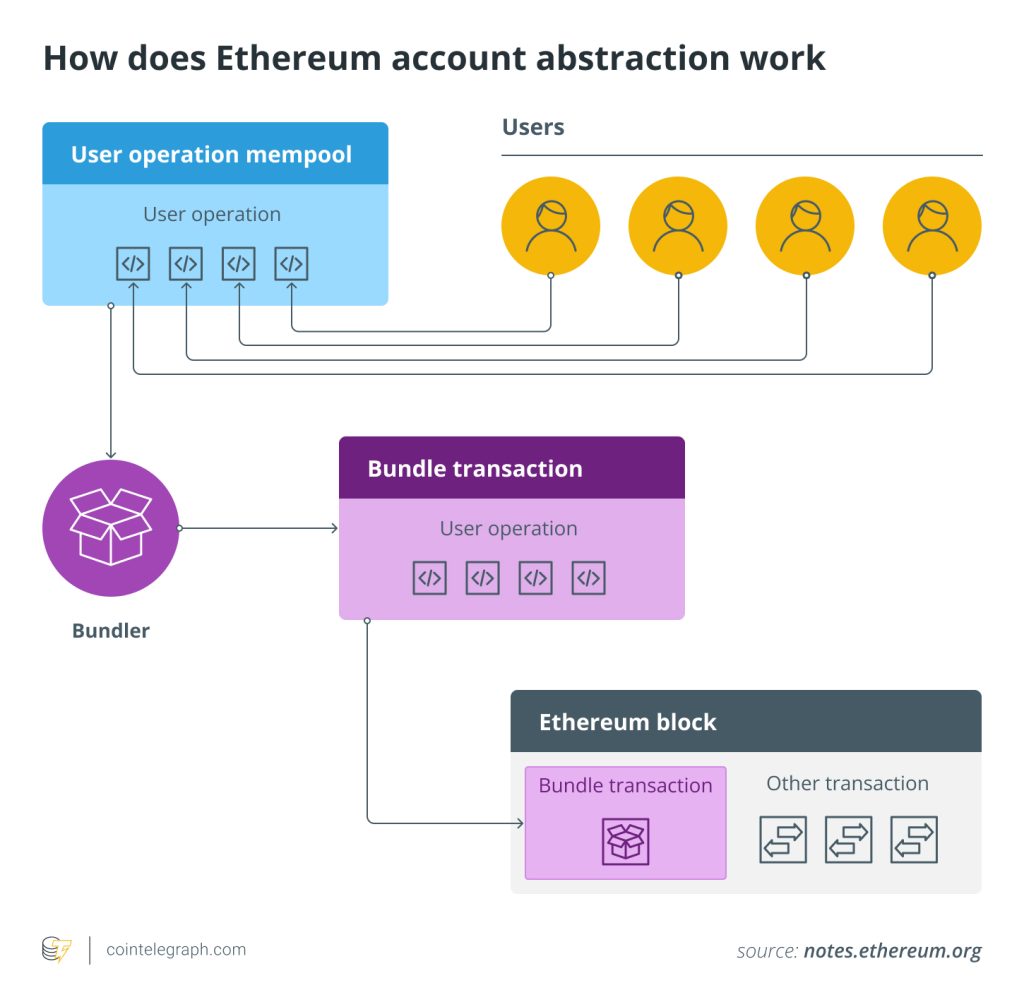
Ethereum ‘smart accounts’ are getting tweaked in an upgrade that will reduce gas usage on layer-2 networks.

The Ethereum Foundation is set to push through major changes to the account abstraction standard in Ethereum in a bid to reduce gas consumption — particularly for layer-2s.
On Jan. 10, the Ethereum Foundation shared a preview of the drastic changes to the ERC-4337 standard specification, which deals with account abstraction, also known as smart accounts.
The new version 0.7 applies learnings from nine months of ERC-4337 being used, according to developer John Rising in an update shared with Cointelegraph.
The biggest change is in the structure of account abstraction transactions, which are more complex than regular Ethereum transactions. These now require specifying five gas values instead of just one.
“The user has to specify more than one gas value to account for the fact that an account can do computation while its signature is being checked,” explained Rising.
Speaking to Cointelegraph, Rising elaborated on why more gas values were required.
“With smart accounts, users can have many different types of signatures and pay for gas in many ways. This means that the amount of gas required varies, and the transaction has to specify how much it is willing to spend for this validation.”
This makes gas estimation more accurate and reduces gas costs, especially on layer-2 networks, since these changes reduce the amount of data that needs to be published.
“The major benefits of v0.7 for users will be reduced gas fees,” explained Rising, who added, “It uses some tricks to use transaction data more efficiently, which is particularly helpful on layer 2 blockchains.”
The new specification will also penalize users 10% for all unused gas in execution, “which prevents apps from putting transactions with unnecessarily high gas limits.”

Account abstraction, also known as “smart accounts,” builds upon basic Ethereum accounts by allowing accounts to have programmable logic and rules, opening up many new use cases not possible with simple accounts today.
Ethereum accounts today are somewhat passive and static, but account abstraction allows them to become active and programmable. It was proposed in September 2021 by Vitalik Buterin and other developers in EIP-4337.
Related: Ethereum co-founder Vitalik Buterin calls for 33% increase in gas limit
The Ethereum Foundation has not announced an expected date for version v0.7 but said that the security audit is beginning now.
“My guess is that everything will be finalized by ETH Denver at the end of February,” said Rising.

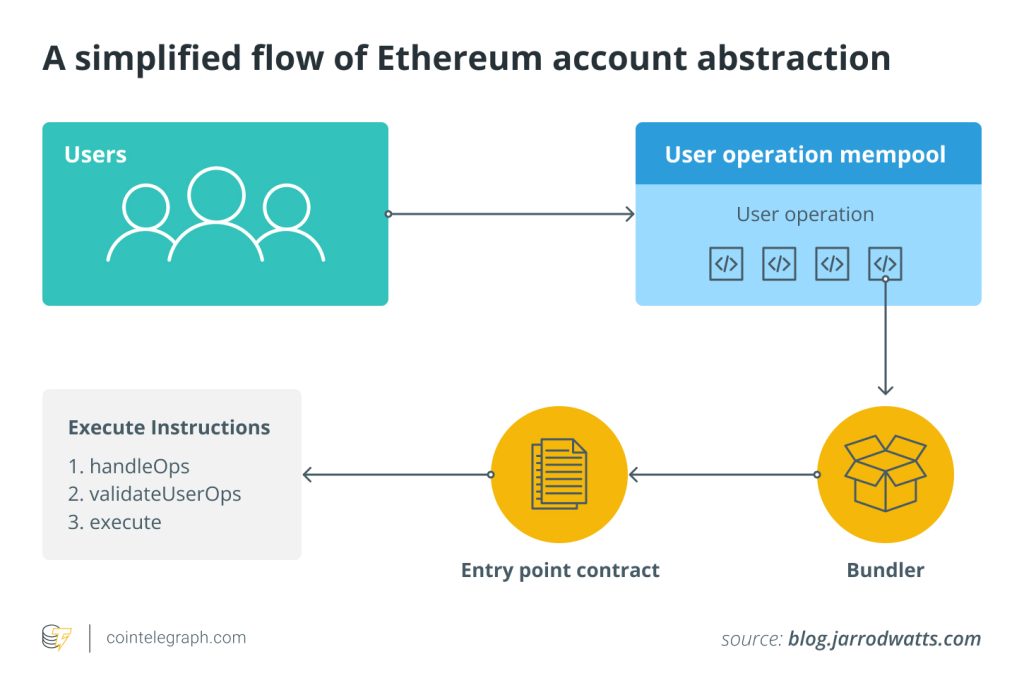
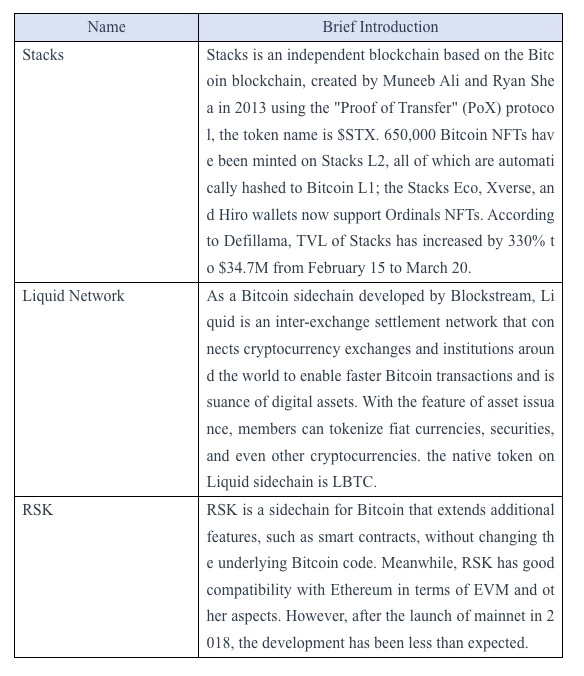
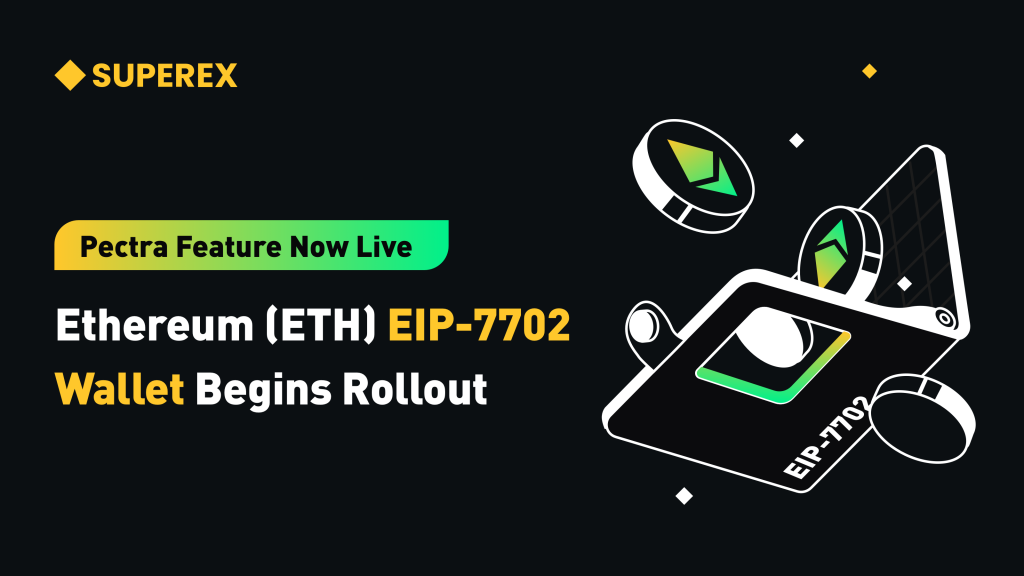
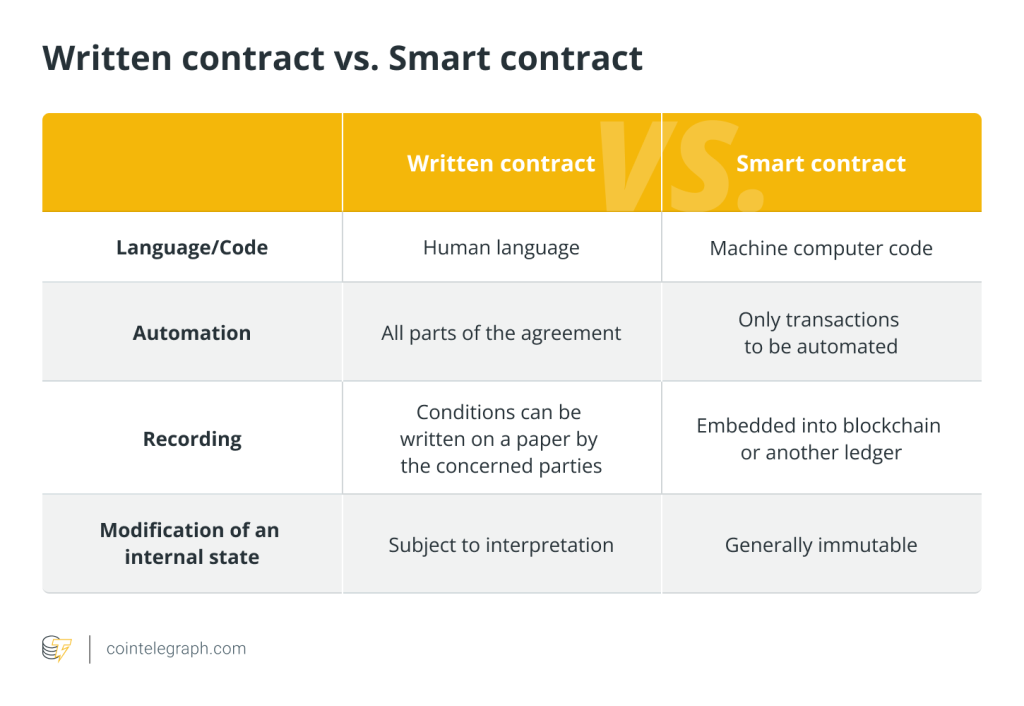
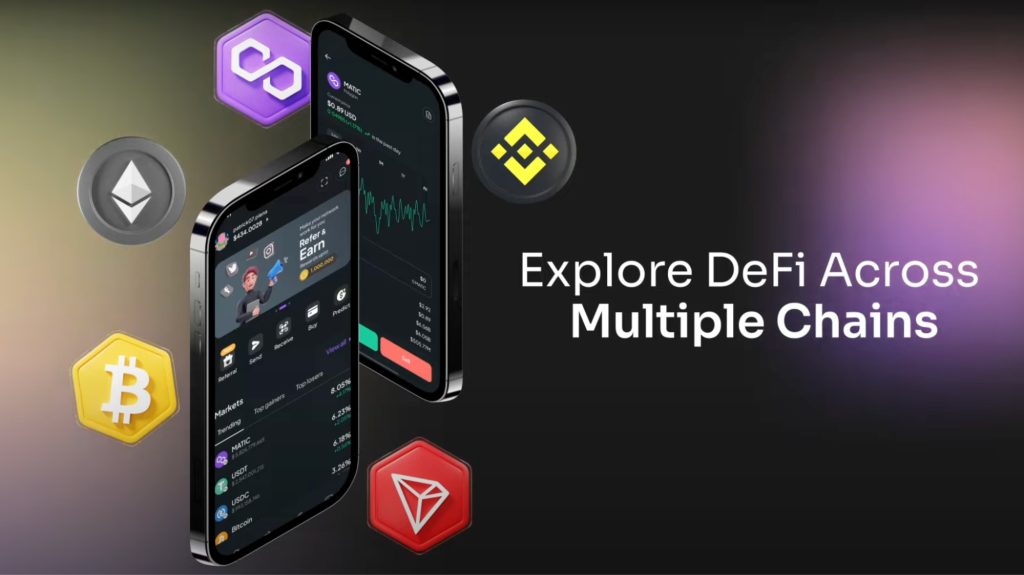
… [Trackback]
[…] There you can find 66389 more Information to that Topic: x.superex.com/news/ethereum/2409/ […]
… [Trackback]
[…] Read More on to that Topic: x.superex.com/news/ethereum/2409/ […]
… [Trackback]
[…] Information on that Topic: x.superex.com/news/ethereum/2409/ […]
… [Trackback]
[…] Find More on that Topic: x.superex.com/news/ethereum/2409/ […]
… [Trackback]
[…] Here you can find 83375 more Info to that Topic: x.superex.com/news/ethereum/2409/ […]
… [Trackback]
[…] Read More Information here to that Topic: x.superex.com/news/ethereum/2409/ […]
… [Trackback]
[…] Find More here to that Topic: x.superex.com/news/ethereum/2409/ […]
… [Trackback]
[…] Find More on that Topic: x.superex.com/news/ethereum/2409/ […]
… [Trackback]
[…] Information to that Topic: x.superex.com/news/ethereum/2409/ […]
… [Trackback]
[…] Here you will find 44686 more Info on that Topic: x.superex.com/news/ethereum/2409/ […]
… [Trackback]
[…] Here you can find 792 more Information on that Topic: x.superex.com/news/ethereum/2409/ […]
… [Trackback]
[…] Read More here to that Topic: x.superex.com/news/ethereum/2409/ […]
… [Trackback]
[…] Read More Information here to that Topic: x.superex.com/news/ethereum/2409/ […]
… [Trackback]
[…] Info to that Topic: x.superex.com/news/ethereum/2409/ […]
… [Trackback]
[…] Read More on on that Topic: x.superex.com/news/ethereum/2409/ […]
… [Trackback]
[…] Read More on to that Topic: x.superex.com/news/ethereum/2409/ […]
… [Trackback]
[…] Find More on that Topic: x.superex.com/news/ethereum/2409/ […]
… [Trackback]
[…] Find More to that Topic: x.superex.com/news/ethereum/2409/ […]
… [Trackback]
[…] Read More on that Topic: x.superex.com/news/ethereum/2409/ […]
… [Trackback]
[…] Read More Information here to that Topic: x.superex.com/news/ethereum/2409/ […]
… [Trackback]
[…] There you can find 73832 more Info on that Topic: x.superex.com/news/ethereum/2409/ […]
… [Trackback]
[…] Find More to that Topic: x.superex.com/news/ethereum/2409/ […]
… [Trackback]
[…] Read More on to that Topic: x.superex.com/news/ethereum/2409/ […]
… [Trackback]
[…] Here you will find 17683 additional Information on that Topic: x.superex.com/news/ethereum/2409/ […]
… [Trackback]
[…] Information to that Topic: x.superex.com/news/ethereum/2409/ […]
… [Trackback]
[…] Find More on on that Topic: x.superex.com/news/ethereum/2409/ […]
… [Trackback]
[…] Read More Information here on that Topic: x.superex.com/news/ethereum/2409/ […]
… [Trackback]
[…] Read More Info here on that Topic: x.superex.com/news/ethereum/2409/ […]
… [Trackback]
[…] Read More on on that Topic: x.superex.com/news/ethereum/2409/ […]